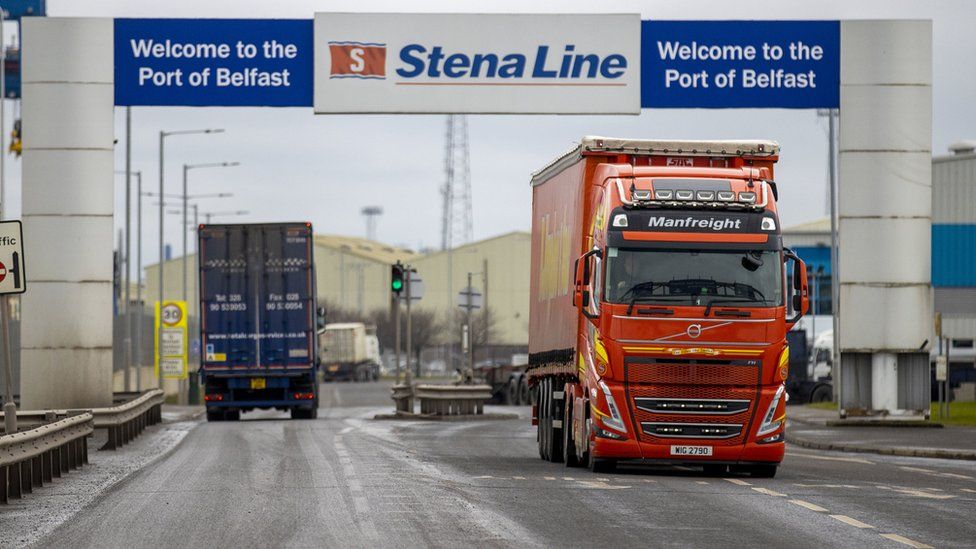Rishi Sunak, the UK prime minister, and Ursula von der Leyen, the president of the European Commission, announced they had reached a new agreement to address Northern Ireland's post-Brexit issues.
Only Mr. Sunak's and Mrs. von der Leyen's perspectives on the deal's implications have been provided thus far.
Their agreement's complete terms have just been made public, and we anticipate being able to give you a more detailed breakdown of what is covered soon.
What is currently known about the agreement, known as the Windsor Framework?
- With a separate "red lane" for goods that might continue on to the EU, the new "green lane" will be used by goods from Great Britain bound for Northern Ireland.
- The "burdensome customs bureaucracy" on goods passing through the green lane, according to Mr. Sunak, will be eliminated.
- He explained that it meant that food that is currently on British supermarket shelves will also be available in Northern Ireland.
- Exporters who use the green lane would only need to submit a minimal amount of paperwork.
- Pet moving "onerous requirements" will be dropped.
- Hospitals and pharmacies in Northern Ireland carry medications that have been given the UK regulator's approval.
- According to Mr. Sunak, people who send packages to friends and family or conduct online shopping in Northern Ireland won't need to fill out any customs paperwork.
- The Northern Ireland Protocol would allow Northern Ireland to use EU VAT regulations.
- According to Mr. Sunak, under the new agreement, the UK may make "critical VAT" changes, including those affecting Northern Ireland.
- For instance, he said, if the government changes the price of alcohol, both Northern Ireland and the rest of the UK will be affected.
- Northern Ireland is subject to some EU law as a result of the protocol, but politicians had no official power to change the laws.
- From this point forward, according to Mr. Sunak, "the only EU law that applies in Northern Ireland under the framework is the minimum necessary to avoid a hard border with Ireland and allow Northern Irish businesses to continue accessing the EU market.".
- With the new agreement, Stormont in Northern Ireland has the power to apply an "emergency brake" if it disagrees with an EU goods law that "would have significant, and lasting effects on everyday lives.".
- If the brake is applied, new EU laws could be blocked by the UK government.
- However, it's unclear what would occur if the UK did use its veto.







